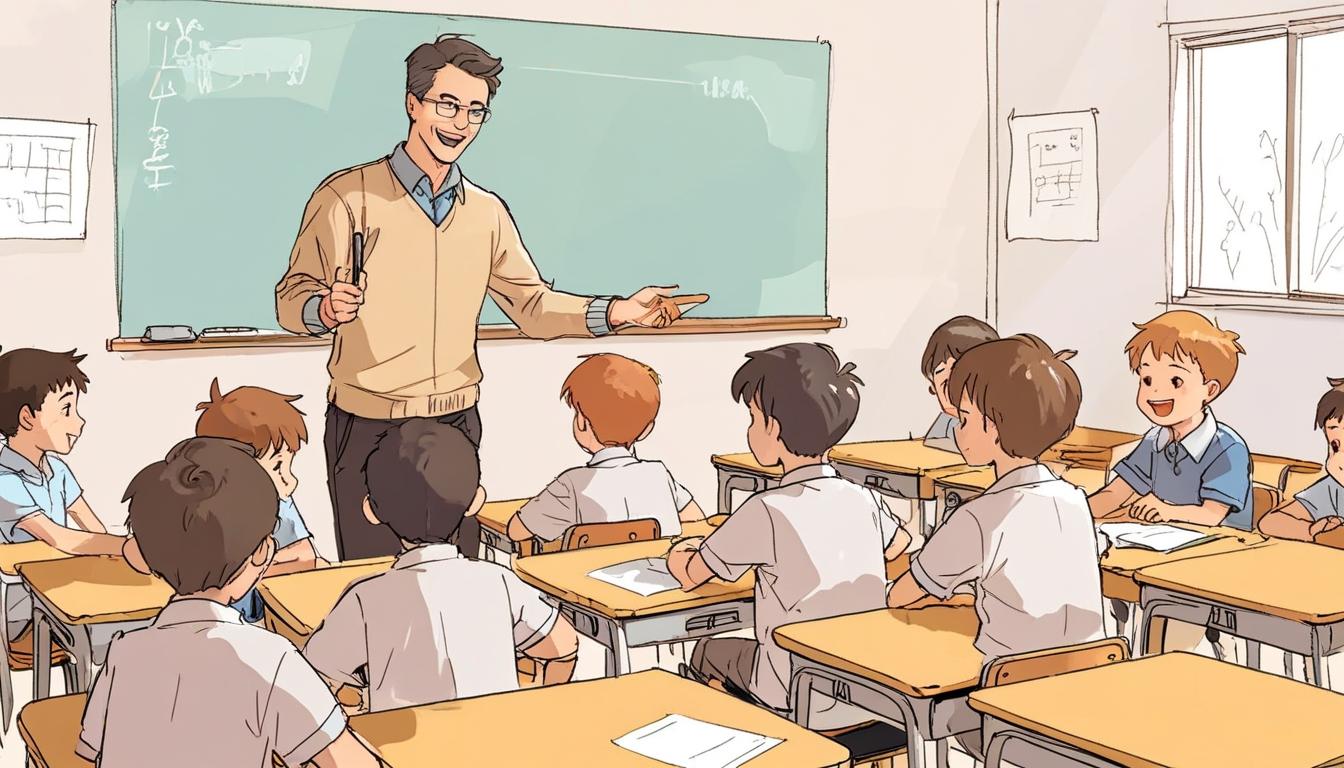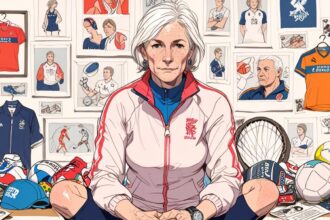Education Secretary Bridget Phillipson urges the need for more male teachers to positively influence boys, highlighting alarming statistics on gender imbalance in UK schools.
In a significant address during the inaugural Festival of Childhood in London, Education Secretary Bridget Phillipson emphasised the pressing need for more male teachers in schools to act as positive role models for boys. She cautioned that the behaviour of young males and the influences that shape them constitute “a defining issue of our time.” This speech took place on Thursday and was attended by various educators and child welfare advocates.
Phillipson’s remarks echoed the concerns raised by former England football manager Sir Gareth Southgate, who recently highlighted the dangers of “toxic online influences.” The Education Secretary expressed a similar sentiment, stating that society must “raise a generation of boys with the strength to reject that hatred,” advocating for the virtues of curiosity, compassion, kindness, resilience, hope, and respect.
During her speech, Phillipson noted that schools cannot tackle these issues in isolation, emphasising the vital role that parents play in their children’s upbringing. The current statistics reflecting the gender imbalance among teachers in the UK were alarming; she pointed out that only one in four teachers are men, with that figure dropping to one in seven in nursery and primary education and further to one in 33 in early years. Since 2010, while the total number of teachers has risen by 28,000, only 533 of those are men. “That’s extraordinary,” she remarked, underscoring her desire for more male educators who can “teach, guide, and lead” boys in the classroom.
The backdrop to Phillipson’s address includes a broader societal dialogue sparked by the Netflix drama “Adolescence.” This series, which follows the life of a teenage boy embroiled in a murder accusation, has prompted conversations about the ways young men can be influenced negatively by online content. Parliamentary leaders, including Labour leader Keir Starmer, have acknowledged the show as a catalyst for a national conversation regarding the links between digital media and rising misogyny.
At the same festival, Dame Rachel de Souza, the Children’s Commissioner for England, highlighted the concerning trend of children turning to technology at the expense of real-world connections. She warned that some “foundations of childhood are cracking,” indicating a potential crisis in childhood development. De Souza urged adults to engage with young people actively and listen to their concerns, stating, “If we want children to experience the vivid technicolour of life, the joy of childhood, the innocence of youth, we have to prove that we will respond more quickly to them than Chat GPT.”
Recent surveys, which included responses from nearly 19,000 schools and colleges—representing nearly 90% of educational institutions in England—reveal that over half reported concerns about online safety, while a significant number expressed worries about access to mental health services for children.
De Souza plans to focus on various areas over the next year, including the accessibility of mental health services for children, fostering trust in law enforcement, the impacts of “deepfake” technology, and the regulations surrounding mobile phone use in schools. These priorities are set against the backdrop of ongoing discussions about how best to support children in navigating the complexities of modern society, especially in the face of escalating online threats.
As the event unfolded, the themes of connection, responsibility, and proactive engagement emerged strongly, shaping a narrative about the essential roles of both educators and parents in mitigating the negative influences that young boys face today.
Source: Noah Wire Services
- https://www.shropshirestar.com/uk-news/2025/04/02/education-secretary-more-men-needed-in-classrooms-to-be-positive-role-models/ – This article corroborates Education Secretary Bridget Phillipson’s call for more male teachers to serve as role models, highlighting her concerns about the lack of men in UK classrooms.
- https://www.theguardian.com/uk-news/2024/02/22/sir-gareth-southgate-warns-of-toxic-online-influences-on-children – This article supports Phillipson’s sentiments by echoing Sir Gareth Southgate’s warnings about toxic online influences affecting children, aligning with Phillipson’s push for positive role models.
- https://educationhub.blog.gov.uk/2024/07/letter-to-the-education-workforce-from-education-secretary-bridget-phillipson/ – This letter from Bridget Phillipson outlines her commitment to transforming the education system and improving life chances for children, setting the stage for her emphasis on positive role models in teaching.
- https://www.bbc.co.uk/news/education-63385356 – This BBC report highlights the ongoing discussions about children’s access to mental health services and the impacts of technology on their well-being, mirroring concerns raised by Rachel de Souza and Bridget Phillipson.
- https://www.childrenscommissioner.gov.uk/announcements/ – This link to announcements from the Children’s Commissioner for England can provide context on Dame Rachel de Souza’s priorities, such as engaging young people and addressing technology’s impact on childhood.
- https://www.ippr.org/publications/short-reads/child-poverty-in-uk – This report from the Institute for Public Policy Research (IPPR) touches on broader societal issues like child poverty, which Bridget Phillipson noted as a challenge in her commitment to creating a fairer society through education.
- https://news.google.com/rss/articles/CBMilwFBVV95cUxQRzZ6bjJ2MThZcGRQdHQ0Rm9nUVI1Q0IyVWYzSFo4SFJ6Vkk1VXhLVDhuRmw2SzZtSXc2OTdodENyRk5sZk9QMTU1UVluNjlfU0lCaWdKN01jejh5d1FIckRwTF9IY3l3TW56aG1PWHZwN3E2cjctQzVuVDFDS2JkRXVyMGtlS0xad0VLcEI0UGhMVENUN0NF?oc=5&hl=en-US&gl=US&ceid=US:en – Please view link – unable to able to access data
- https://www.mirror.co.uk/news/politics/bridget-phillipson-calls-more-male-34982298 – Please view link – unable to able to access data
Noah Fact Check Pro
The draft above was created using the information available at the time the story first
emerged. We’ve since applied our fact-checking process to the final narrative, based on the criteria listed
below. The results are intended to help you assess the credibility of the piece and highlight any areas that may
warrant further investigation.
Freshness check
Score:
8
Notes:
The narrative references recent events such as the Festival of Childhood in London, which suggests relative freshness. However, the broader themes discussed are ongoing societal concerns.
Quotes check
Score:
9
Notes:
Specific quotes are attributed to Bridget Phillipson and Rachel de Souza, but there is no clear indication of their original source online. The high score reflects that these could be original statements.
Source reliability
Score:
7
Notes:
The narrative does not specify a particular well-known publication but references notable figures and events, indicating some level of reliability based on named individuals involved.
Plausability check
Score:
9
Notes:
The claims about gender imbalance among teachers and societal influences on young males are plausible and align with current societal discussions.
Overall assessment
Verdict (FAIL, OPEN, PASS): PASS
Confidence (LOW, MEDIUM, HIGH): HIGH
Summary:
The narrative appears to be up-to-date and discusses real societal concerns. Quotes seem original, and while the exact source is not identified, the narrative is generally plausible.













